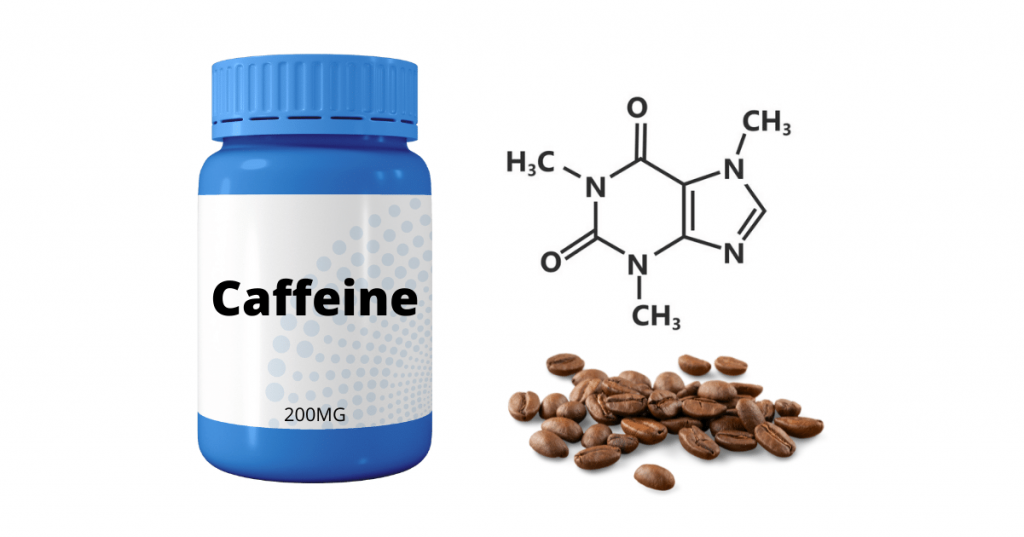Caffeine is the world’s most widely used stimulant and the most crucial element in all stimulant-based pre-workout supplements for its performance-enhancing effects. A single dose can significantly improve exercise performance, focus, and fat burning.
Table of Contents
How Much Caffeine Do We Actually Take for Performance ?
We have to question whether such a large dose is even necessary because some pre-workouts include caffeine levels that are more than half of the suggested maximum of 500 milligrams. Well for better understanding let’s get in to newly published research and it will shed some lights on this question.

In this new study 28 resistance trained men were tested in four different areas,
- Upper body strength
- Lower body strength
- Upper body endurance
- Lower body endurance
They were performed using a one-rep maximum strength test and with as many reps possible at 60%1RM for endurance. Five unique experimental runs were conducted. Three of which tested the effects of three different caffeine doses – 2, 4, and 6 milligrams per kilogram of bodyweight one hour before training. For the average 80-kilogram individual, that’s 160, 320, and 480 milligrams of caffeine. Two experiments were controls, one with and one without a placebo.
Results – Caffeine did actually lead to improvements, but not in all tests. In terms of strength, upper body strength needed the higher dosages of 4 and 6 milligrams per kilogram to see statistically meaningful benefits. But even with those higher doses, the bench press maxes only went from about 106 kilos in the control to roughly 108 kilos in the higher caffeine dosages. More importantly, this was only in comparison to the no placebo trial. Against an actual placebo, there was no statistically significant benefit from any of the three doses. Lower body strength, on the other hand, did have moderate improvements, but it’s a bit reversed. In this case, Statistically significant improvements were only seen with the 2-milligram dose, increasing squat 1RM to 132.2 kilos versus both control trials at 129 kilos. A 3+ kg 1RM gain is unquestionably preferable, although nothing exactly mind-blowing.

since the 4 and 6 milligram dosages did nothing, this suggest having too much caffeine might potentially blunt strength benefits. Now, for endurance, it’s a bit of a mixed bag. Caffeine has almost no effect on muscle endurance in the upper body. All five trials hovered around 20.5 to 21 reps in the 60%1RM bench press test. Only with lower body endurance researchers observe a far more pronounced and significant caffeine benefit. The no placebo and placebo trials observed 21.7 and 21.1 reps respectively in the 60%1RM squat. Although there were no statistical differences for the three caffeine trials, they all set about 4 to 5 reps above the controls, with 25 to 26 reps.
But because they saw no distinction between the three trials, , this suggests that having a low caffeine dose is enough to exhibit lower body endurance benefits and more won’t do you better. So now, taking all of this wonderful information into account, what does it mean for you? First point is that when it comes to caffeine’s performance benefits, it might not be something worthwhile for strength or don’t expect it to increase your 1RM by more than a few percentage points, at the very least. Endurance is a bit trickier. For simplicity’s sake, let’s just say that if it’s leg day, then yes, it might be worth taking. If you do choose to use it for either performance reasons, then taking 2 milligrams per kilogram of bodyweight is all you need. I do want to highlight one study limitation of the research, which is the issue of caffeine tolerance.
The majority of participants were low habitual caffeine users, consuming no more than 100 milligrams of caffeine per day. Some people generally taking more and this study’s lowest dose was higher than 100 mg. we’ll see benefits in users with habitually higher intakes is up in the air, cycling your caffeine if you’re a high-caffeine user might be a good idea. Finally, Caffeine might help but you certainly don’t need too much of it. You can see the link to this research below if you want to read it yourself. Let us know about your caffeine experiences in the comments Section below.
Don’t forget to share This article with your caffeine-loving friends.




